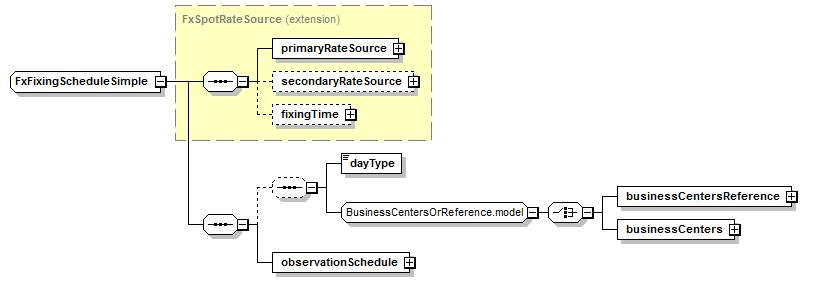
Namespace: |
|
Content: |
complex, 7 elements |
Defined: |
globally in fpml-fx-5-8.xsd; see XML source |
Includes: |
definitions of 2 elements |
Used: |
at 1 location |

XML Representation Summary |
|||||
<...> |
|||||
|
|||||
</...> |
|||||
|
Type Derivation Tree
FxSpotRateSource (extension)
|
|
<xsd:complexContent>
<xsd:extension base="FxSpotRateSource">
<xsd:sequence>
<!--Q?- can you specified dayType without BusinessCenters or vice versa? -->
<xsd:sequence minOccurs="0">
</xsd:sequence>
</xsd:sequence>
</xsd:extension>
</xsd:complexContent>
</xsd:complexType>
|
Type: |
DayTypeEnum, simple content |
|
enumeration of xsd:token
|
Enumeration: |
|
||||||||||||||||||
minLength: |
0
|
Type: |
FxObservationScheduleBase, complex content |
|
XML schema documentation generated with DocFlex/XML 1.9.0 using DocFlex/XML XSDDoc 2.8.0 template set. All content model diagrams generated by Altova XMLSpy via DocFlex/XML XMLSpy Integration.
|